A field guide to residencies
What they are and how to get (the right) one
Why a residency?
Eight years ago, I wandered into a discussion on applying to residencies at a literary festival. I’d only recently started writing, and I hardly knew what a “residency” was. The panelists described writing cabins in the woods and lunches delivered in cutesy picnic baskets. When asked for advice on applying, they spoke of highlighting “top-tier” publications in their CVs and crafting an artist statement to woo jurors.
At that point, I didn’t have any publications. I had no idea what an artist statement was. Everything they conjured seemed like a faraway dream, available only to real writers.
Fast forward six years to 2023, when I attended my first residency in Virginia. Two weeks in a rural setting, with little to do outside of campus especially if you didn’t have a car. No nearby town to explore, no hikes within walking distance. We didn’t live in cabins but in somewhat grim dorm-style rooms.
I loved it. Loved it. It’s hard to describe the appeal of residences to anyone who’s not an artist, or even to explain what a residency is. It’s not a workshop, it’s not a retreat, it’s not a vacation. But there’s usually no schedule aside from mealtimes, so you could use it as a vacation, and some people do. Most artists, though, use the uninterrupted time and and space to get a shitload of work done, a level of productivity impossible at home with its attendant constraints of work, cooking, cleaning, childcare, dogcare and so on.
Making art is often lonely, just you and your notepad / easel / camera for days and weeks at a time. Residencies also offer the rare chance to connect with other artists in a sustained way. It’s a bit like college, where you’re thrown together with a bunch of people you’ve never met before and forced to live with. Sometimes, you don’t click with anyone. But in my experience, there’s at least one person you connect with over lunch or an after-dinner stroll.
Most residences are also set in rural areas where the access to nature—prairies, mountains, forests, maybe even the ocean—appears like a badly needed breath of fresh air, especially if you’re coming from a city.
But to me, one of the best parts of residencies is the validation. The sense of “wow, someone believes in my writing enough to house and feed me for 2/3/4 weeks so I can concentrate on it.” What an extraordinary gift at a time when public funding for the arts is being dismantled and tech companies are ripping off our work to feed into their soulless AI.
Residencies remind us that art matters, and is worth investing in.
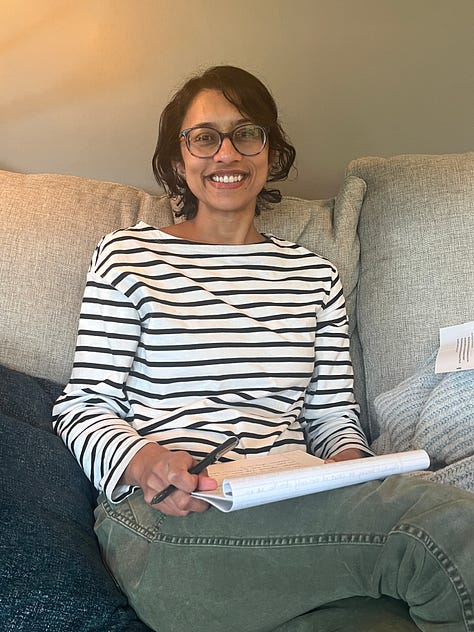
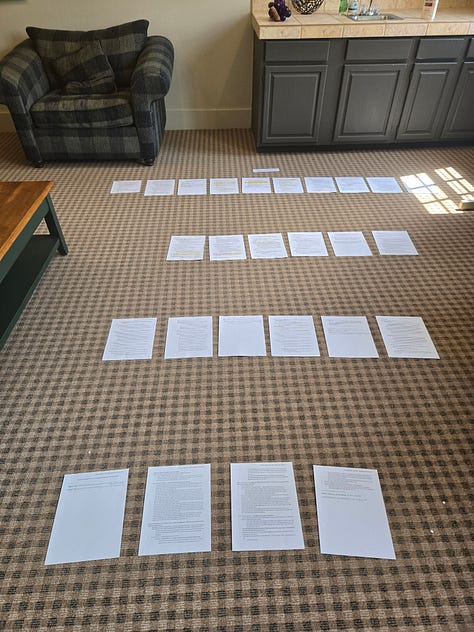
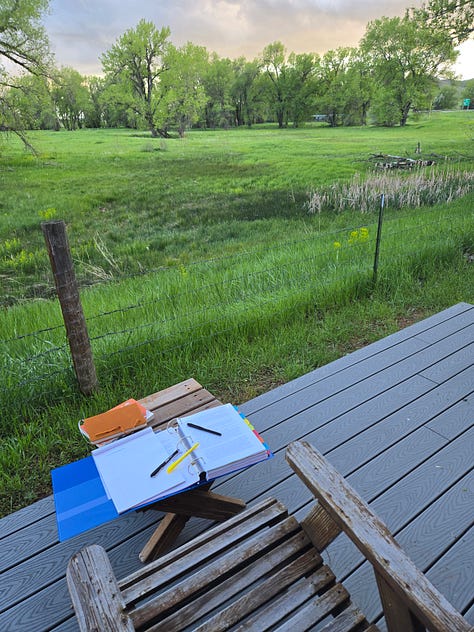
How a residency?
Before going further, I should note that I still get rejected from residencies ALL the time. In the past couple years, I’ve been rejected from: Yaddo, Monson Arts, Marble House, Writers’ Colony at Dairy Hollow, Willapa Bay, and probably several others that I’m forgetting. I’ve never even bothered to apply to MacDowell, arguably the most prestigious and competitive residency in America. But I have had some success. I just returned from UCross in Wyoming, which was absolutely dreamy. Before that, I’ve been to Mesa Refuge, the Banff Centre, Vermont Studio Centre, VCCA, Ragdale, the Betsy Hotel, Mountain Field Farm and Storyknife (later this year!). I’ve learned how to best position myself in applying, but maybe even more importantly, what helps me be productive and well-rested. Not every residency is set up for what I or you may need, so let’s start there, with the questions I ask myself before I even apply:
Are there any fees to attend or is it fully funded (i.e. free)? If there are fees, are there scholarships or a sliding scale? I’ve generally stopped going to residences where I have to pay anything, but a low fee might be worth it to some.
Related: how much is the application fee? If it’s over $30, is it possible to ask for a waiver? If you’re applying to a whole bunch of residencies, these fees can add up quick.
Also related: traveling to residencies can also cost a lot, so I’ve been prioritizing those that also offer a travel stipend e.g. UCross, Storyknife, Mountain Field Farm.
What is the general profile of recent alumni? Are at least some roughly at the same stage of their careers as me? How diverse are the cohorts? If it looks like everyone is far more established than me OR if it’s mostly white male artists, I don’t apply.
What are the housing and working facilities like? I need to have my own bedroom, and prefer my own bathroom, plus a working space separate from my sleeping space.
What is the food situation? Is there a chef on staff? Do residents make our own meals? Some combination of the two? Will my dietary needs be accommodated?Not having to worry about meal planning, grocery shopping, and cooking + being fed well are among the great joys of residency life. The best residencies imo have a self-serve breakfast, deliver lunch to your work space/studio or have you pick it up, and then a communal dinner in the evenings.
How long are the residencies? For me, anything less than 2 weeks is rarely worth it. It usually takes a day or two for me to settle in and find my rhythm, and a day at the end to wrap up. So that really only leaves about 12 days to work, which is not a whole lot.
What kind of access to nature will I have? I do my best thinking and writing when I can also hear birds sing, smell the flowers in bloom, or just stare at a big sky. If I can go for a hike or a walk on the beach, even better!
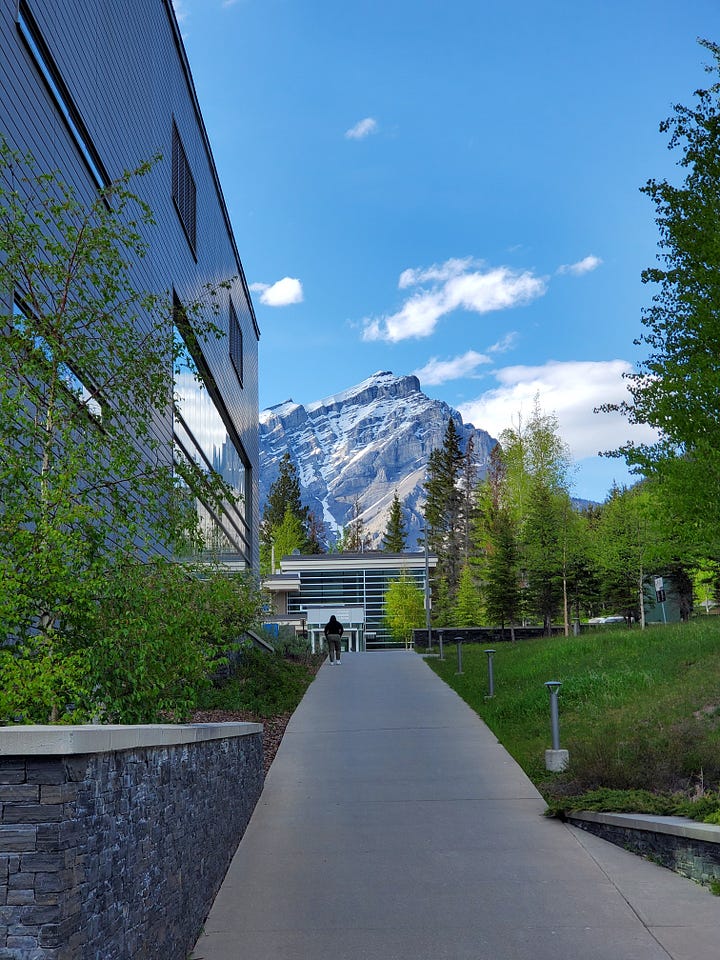

Insane nature at the Banff Centre, where I was in residence last summer. I spent a lot of just gaping at the scenery. How big is the cohort? I’ve been to residencies with up to 30 other artists at a time, and one where I was the only resident. Depending on how spacious the facilities are, I think a cohort of about 7-12 people is ideal: big enough to find your people and have some sense of community without being overwhelming.
Does the residency have a code of conduct? What is their conflict resolution policy? Artists can be divas, and they can also just be human, meaning they can act in terrible ways. If you’re going to be spending weeks in a remote location with a bunch of people you’ve never met before, it’s important to know how the program handles any conflicts or complaints.
What are the expectations of artists? Are we required to complete a certain project, present our work at some point, or engage with the local community? Will this part be enjoyable or stressful (or both) to me?
Do I know anyone who’s been there? What was their experience? This is helpful in deciding whether to apply, and in the application itself: if a former resident said great things about the program, mention that in the application! It shows you did your homework.
All the questions and considerations might seem like I’m being picky, and perhaps I am. But if I’m going to leave the comforts of my home, it has to be worth it. And if it’s not the right fit, I’d be depriving another writer who might have enjoyed the program more than me, which is a loss for everyone.
Application advice
The part all you artists have been waiting for. Here’s my advice for applying, in no particular order:
Read and follow the guidelines!! This is such an obvious one, but having been on a couple selection panels for residencies, it’s kind of shocking how many people…don’t do this? Pay special attention to whether your name should appear in certain parts of the application or not, formatting, and whether your work fits with the program (e.g. some residencies don’t support purely academic writing). If after submitting, you realize you made a mistake, email the program right away and they might be able to help you fix the error before it goes to the selection committee.
The work sample is the most important part, so spend a lot of time on this. Don’t submit early drafts, even if you think it’s your most exciting work. Submit whole chapters rather than excerpts from different parts of your project. Select a sample that grounds readers very quickly in place, time, and conflict. Jurors have to read a lot of application, and you need to grab their attention quickly. Most of all, make sure you get feedback on the sample from others and revise, revise, revise.
Articulate why THIS residency and why NOW. Are you at a critical stage in your project and if so, what is it? Will you be working madly on revisions? Will you be doing deep research, or generating lots of new work? What is it about this particular residency — the setting, the facilities, the surrounding community, the schedule, the profile of other artists — that makes it ideal for the work you need to do?
Look up the mission and vision of the residency program. Tailor your application to what the residency is trying to achieve in the world. Do the same with fellowships and scholarships, which are often funded by or dedicated to a certain artist. What did that person do with their life and work that is reflected in your artistic process or product?
Articulate the potential impact of your work. Think big here. How does your project stand to transform your discipline, your career, and maybe even the culture-at-large? Why is it needed now? How is it connected to current events? What stands to be lost, destroyed or go unacknowledged if you don’t make this work? Residencies want to support artists whose work feels critical and urgent.
Don’t be humble in your artist statement. Even if you haven’t been making art for long, you can still position yourself as a subject matter expert on what you’re writing or making art about thanks to your lived experience, itself based on your identity (e.g. racial background, where you grew up, where you lived), your career (what you studied, various jobs), or the events you’ve experienced (e.g. group sports, natural disaster, illness).
Look at as many other artist statements and CVs as you can to improve your own. Ask friends and colleagues to share theirs. There are great online resources for this too, including Creative Capital and the New York Foundation for the Arts.


Creative Capital & NYFA: treasure troves of information! Don’t be shy, but also don’t be wordy. Keep every part of the application as short as possible. Jurors have to sift through dozens if not hundreds of applications and they appreciate brevity and clarity.
Keep track of deadlines. Once I find a residency I want to apply for, I’ll make two calendar “events:” one for when applications open, and another for the application deadline. Most programs also have newsletters and/or social media that announce these dates but slotting them into my calendar makes applying feel like more of a real commitment.
Spending your time at residency
Someone asked me how to best spend their time at residency, and I think this really depends on many things: deadlines, energy levels, and what’s calling to you. I met a poet at one residency who’d just come off book tour. She was exhausted and chose to use her two weeks in residence to nap, read, walk. She wrote one poem on her last day, and that was it. I loved that for her.
Because of several external deadlines, I’ve spent the past few residencies grinding away on projects. But I also savored the chance to read before bed every night for at least 30 minutes, something I don’t do regularly at home.
When I went to Ragdale a couple years ago, I was completely enchanted by the prairie behind the residency house, and spent at least an hour a day wandering through the tall grass, greeting the many deer and bunnies that called the prairie home. At Mountain Field Farm in Alaska, I hiked almost every day.
At other residencies, I’ve spent more time hanging out with other artists, because I really needed community and solace at those times in my artistic life. This is still important to me, and if I happen to find myself with a great cohort, I will work less and hang more.
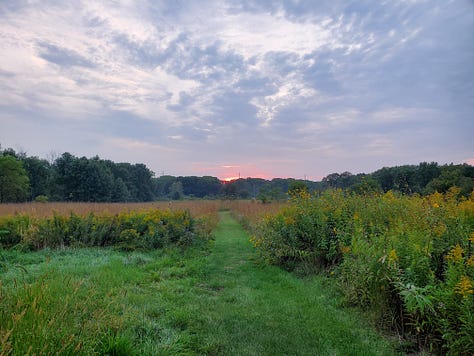
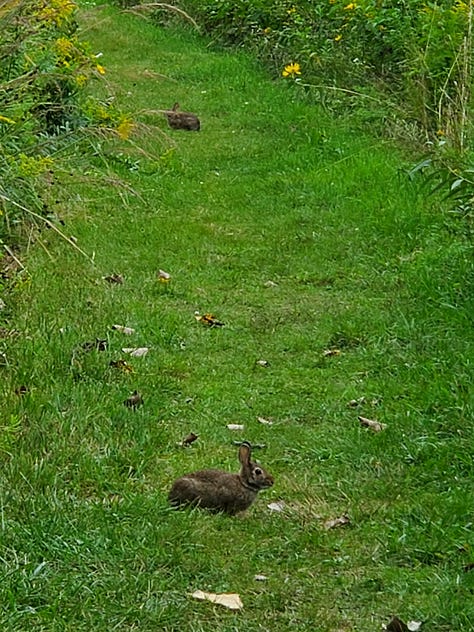
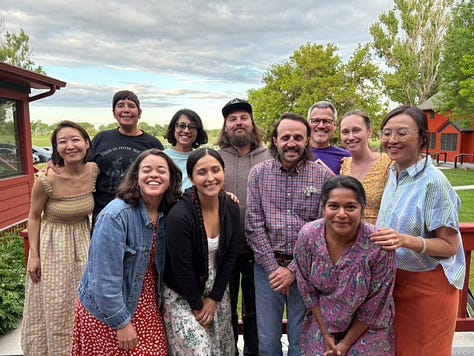
All of that to say: I don’t think there’s any wrong way to spend a residency, as long as you’re attuned to what you need. Always, I let myself sleep in, linger over meals, and spend at least a little time outside, even if that just means standing on the deck before getting back to work.
Housekeeping + updates
Speaking of work, my true crime feature story for WIRED is now available in audio form: on Apple News, on the NYT audio app, and on WIRED itself.
In other news, some of you nonfiction writers may be working on or contemplating a book proposal. If so, please considering joining me this summer in a five-week course designed to help you craft this mythical thing: part sales document, part project plan, and part creative vision.
We’ll be joined by Lauren Markham, fabulous journalist and author of several critically acclaimed nonfiction books, including The Far Away Brothers and A Map of Future Ruins; and by Elisa Gabbert, author of seven collections of poetry, essays, and criticism, including Any Person Is the Only Self and The Unreality of Memory. Lauren and Elisa will walk us through their book proposals and the process of writing, refining and selling them, as well as how they used these documents as a roadmap in actually drafting the book. We’ll also be joined by my agent, Nolle Falcis-Math of Transatlantic, and by Anni Lui, my brilliant editor at Graywolf, who’ll both discuss how they evaluate proposals, and how to make yours stand out in a teeming literary landscape.
By the end, you'll have a working draft or detailed outline of your very own proposal. Any questions, just comment or DM me.
Until next time,
R


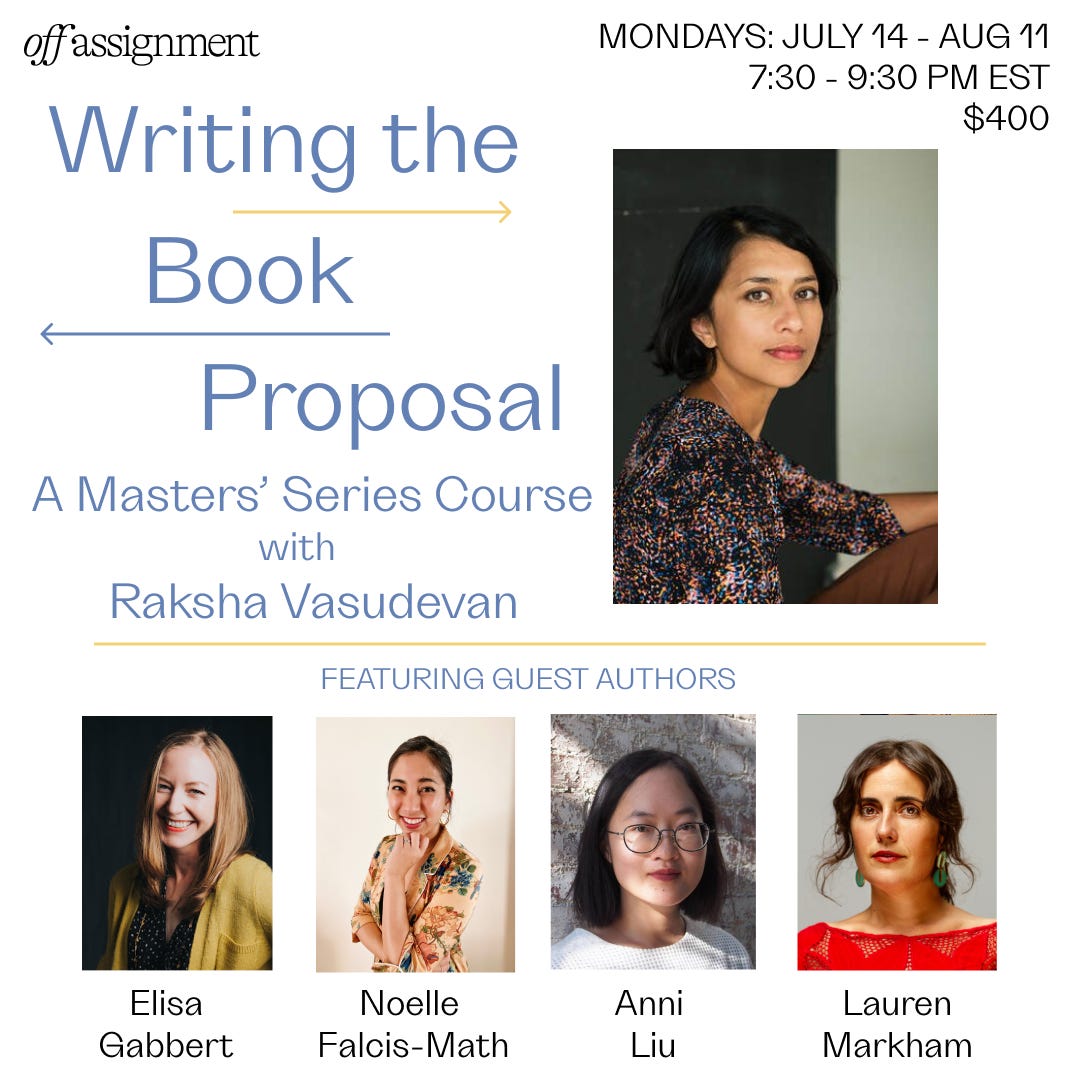
I just enjoyed this so much, even as a person who has done many residents and can attest to so much of this, I loved reading your thoughts on this!
The list of questions you ask yourself before applying are helpful! Thank you for that. I am considering a residency now. In the beginning, did you ever pay a substantial amount for a residency or have you always only applied to those that are funded or very low cost?